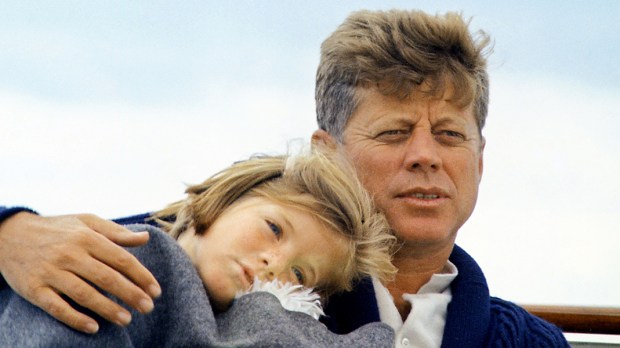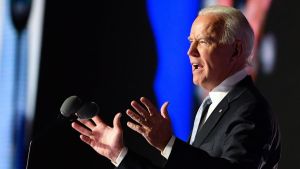John Fitzgerald Kennedy spent only two years, 10 months and a few days as president of the United States. He was only 46 when he was assassinated. But he is still one of the most consequential and talked-about chief executives in the history of the American presidency.
JFK’s death still looms large in the minds of many Americans, who may recall the assassination as the beginning of a very troubled decade. His early demise is one that still sparks questions and conspiracy theories. And it’s the biggest story in the history of a political family that has had more than its share of tragedy and scandal.
On election day in 1960, Kennedy was the youngest man ever elected president, at age 43. His legacy continues in areas such as the space program, the Peace Corps, civil rights and the arts.
And aside from being known for the failed Bay of Pigs invasion and the happier ending of the Cuban Missile Crisis, Kennedy was the first Catholic to successfully pursue the highest office in the United States.
It may come as a surprise to some that in 1960, many Americans downright feared the prospect of a Catholic president.
A Democrat, Kennedy had spent six years representing Massachusetts in the House of Representatives and eight years in the Senate when he ran for the presidential nomination. He had good looks and a reputation as an open, young, energetic man of the people. But he had to overcome a deep-seated prejudice and the common wisdom that no “Papist” could win the White House. A previous northeastern Democrat, Al Smith, tried — and failed.
“There was a lot of traditional anti-Catholicism, which was of two varieties. One was old-fashioned fundamentalism: the pope is the Antichrist, the Church is the scarlet woman in the Bible,” said James Hitchcock, author of Abortion, Religious Freedom and Catholic Politics. “Then there was the sophisticated anti-Catholicism, found among liberal intellectuals, [including the feeling that] certain Catholic teachings — birth control for example — are not good for society.”
“There was a strong secular wing of the Democratic Party that thought Catholics were not to be trusted on issues related to church and state, whether it was aid to Catholic schools, which Catholics tended to support, or on issues like marriage and the Catholic, firm line that divorce was not accepted,” said Thomas Carty, author of A Catholic in the White House? Religion, Politics, and John Kennedy’s Presidential Campaign.
In fact, as a congressman, Kennedy supported local government aid to parochial schools. “It was good for local politics, and for his Irish Catholic constituency [in Boston] that believed it was unfair to have to pay taxes for the public schools and then have to pay tuition if they wanted to send their children to Catholic schools,” Carty said.
When presidential candidate Kennedy came out against government aid to Catholic schools, it was “probably the one issue that helped defuse a lot of opposition to him,” said Hitchcock, who was 23 at the time. Kennedy was the first president he ever voted for.
In addition, Catholics were “overly aggressive” in their opposition to communism, Carty pointed out. The embattled Sen. Joseph McCarthy of Wisconsin, who led an effort to blacklist many in Hollywood for their affiliation with the Communist Party — actual or suspected — was a Catholic “and in some way seen as emblematic of a Catholic attitude toward communism,” Carty said.
“There were liberals in the Democratic Party who asked ‘Is Kennedy a little bit too much that way? Is he going to turn out to be a war monger?'” Hitchcock recalled.
A primary victory for Kennedy in Protestant West Virginia was an early good omen, but after his nomination, there was a lot riding on a televised speech he gave to a group of Protestant ministers.
Settling nerves
As the campaign against Republican nominee Richard Nixon got into full swing, Kennedy told the Greater Houston Ministerial Association on September 12, 1960, that it was not important in the campaign what kind of Church he believed in but what kind of country he believed in.
“I believe in an America where separation of church and state are absolute, where no Catholic prelate would tell the president, should he be Catholic, how to act, and no Protestant minister would tell his parishioners for whom to vote.”
“I am not the Catholic candidate for president. I am the Democratic Party’s candidate for president, who happens also to be a Catholic,” he said. “I do not speak for my Church on public matters, and the Church does not speak for me.” He continued:
Whatever issue may come before me as president — on birth control, divorce, censorship, gambling or any other subject — I will make my decision in accordance with these views, in accordance with what my conscience tells me to be the national interest, and without regard to outside religious pressures or dictates. And no power or threat of punishment could cause me to decide otherwise.
Kennedy received a narrow victory on November 8, and he was inaugurated as the nation’s 35th president the following January 20.
“In a way, he set the model, and it was carried forward to a great extent by his brothers [Senators Robert Kennedy and Edward Kennedy], and it was followed by others,” Hitchcock summed up. Former New York State Gov. Mario Cuomo “carried it to the next level, when he was very strongly insistent upon the separation of personal beliefs from public policy.”
Hitchcock notes a “paradox” in the fact that the Kennedy years came right before the opening of the Second Vatican Council.
Catholics in the public square
“It was often said about the Second Vatican Council — and I would say more by liberals than by conservatives — that we want to get the Church out into the world: ‘Get the Church out of the sanctuary. We have to be a witness to the world, we have to be working to make a better world. This is what our faith demands of us.’ Yet when you get to these public issues like abortion, the response is ‘Wait a minute, you’re overstepping, get back into the sanctuary again. You shouldn’t be mixing in politics.’
“So I think there were people who viewed Kennedy as a representative of this new Vatican II type Catholic, who was so socially aware, but at the same time a man who was saying, ‘Look, my Catholicism is not influencing or shaping my public policies.'”
Indeed, as Carty pointed out, there was a sense that JFK had breached an important barrier. Many Catholic Americans considered him a hero — even a martyr. In a eulogy, Boston’s Cardinal Richard Cushing said he was “just as good a Catholic as I am” who “spent more time in private prayer than many people know,” Carty said. “Andrew Greeley called him a doctor of the church, who brought Catholics into the center of American life instead of living on the margins.”
Most Catholics wouldn’t go that far, but for certain, John F. Kennedy is remembered as a game-changer.



